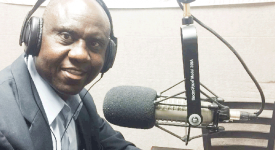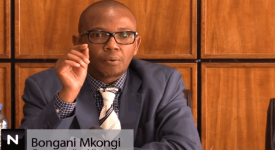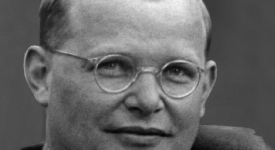For a moment consider that spiritual and psychic feel which you thought you had experienced upon first-initial contact with a most holy ground. You do not have to be Christian or Muslim to have benefited from such out-of-this-world gusto. The atheists too have their fair share of this more-than-human extraordinary moment; it may never last long. But what if this feeling can be perpetuated more often, like the art of lovemaking, it becomes a moment you always anticipate with great palpitation, until, depending on what uses you put it into, begin to grow disdainful of it due to over-familiarity. This is what pilgrims feel with their experience of performing what might be more than mere religious cathexis.
But imagine being treated like an animal by Israelis or Meccans, to be guilty of oversimplification, let’s call the latter Arabs. At any rate, historical narratives have at one time or the other portrayed either of these as victims of geopolitics. However, would you ever think of what comes to your mind when you find out that you are not welcome to inhabit the “holy land” which you stumbled upon through the gateways of holy books, because, after all, you do not belonged there? Would you be content with waiting for that eternal bliss promised by your holy books?
Consequently, Christians and Muslims–like other religious people who have special sites for their religious heritage–visit designated holy places, e.g. Jesus’ tomb, the city of Galilee, the Muslim Kaaba, etc. Some pilgrims who returned from the Hajj said they would never visit Mecca, not ever again! For many Christians, the land of Israel continues to hold unbroken enchantment. So every contrary piece of evidence about the racialized reality in Israel or Mecca is not so much of big deal to such people: they go to meet their God, or disappointingly, the reality called human social politics. It is always an experience par excellence! Hence, the Israeli economy may never know decline any time soon so long as the faith of millions of people remains unchallenged, and unexamined in the face of brutal racism in Israel, by Israelis, to Black peoples, especially. These peoples are the common others.
Israel, or the Land of Israel, happens to be identified with important religious sites for Christianity and Christians. It is called the Holy Land. Every year, thousands of people from around the world take flights that cost millions of dollars. Like Israel to the Christians, Mecca enchants the Muslim. There is unanimous Islamic rhapsody in the presence of the Kaaba, ushering in powerful unearthly energy from the presence of Allah. The Christian is transformed, while the local economy is dis-figured, reborn after the likeness of a new spirituality which produces tangible realities of materiality. In our case in Africa, it’s simply called phases of enriched spiritualities in the face of abject socio-economic impoverishment.
Nobody is fooling nobody. Everybody wins. This win-win perception is needful so that the constructed myth of social, economic, and especially political equilibrium (status quo)– and not social, political or economic justice– is maintained.
But why is it difficult to look at Lands of Holiness differently? What are the true enchantments that continue to spellbind the pilgrim to these sites of spiritual formations and psycho-identification? If you have these answers please assist those of us who need to get there with you…
Everyone has an angle upon which their “holy lands” are projected. For many the US represented that site which is called freedom, discovery, innovation. The US definitely has saved millions of lives, providing succor to many who were previously running away or after “something”. But the US has also destroyed–maybe dashed–many hopes and expectations both in the lands where such “running” people are running from, and here in the United States. Take the immigration reform for example. You would be surprise the kinds of arguments which some people provide why you have to go back to your country. It makes you remember that amnesia is more than a medical condition; the disease is as real as witchcraft in Africa. If you never read any history books you would almost have believed that Thanksgiving in fact corroborated Columbus’s achievements, and not the genocide that we now know about.
Violence arising from patriotism and extreme fundamentalism, whether acted by US Republicans or Boko Haram slaughtering machines in Nigeria, cannot be labeled otherwise for corporate branding. Violence is violence. It does not matter who acted or played them out. So just as the US makes serious efforts at squashing terror and terrorism, it might also be most helpful if the corporate world would only sincerely pursue this war on terror more open-mindedly, and stop accepting stolen monies from Africa’s thieving rulers or encouraging them to bargain their countries for the temporary gift of international agreements; the sanctimonious media game of selling arms to war merchants who recruits Africa’s future Obamas as child soldiers need to be condemned, and stopped. Not that Obama himself gives a hoot about some black African bodies. Fear is that a very dark future is looming if nothing is done to immediately address the capitals and sites of darkening globalizing horrors.
If the above is done, maybe we might have been able to educate enough people to have a sense that our Holy Lands are here with us under our very feet.
to be continued…








